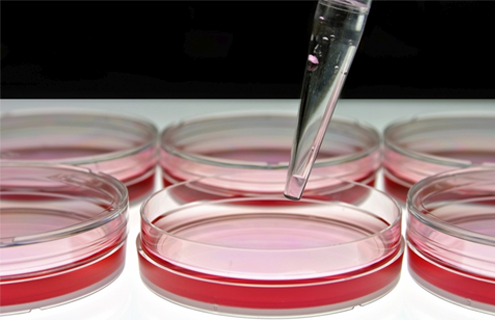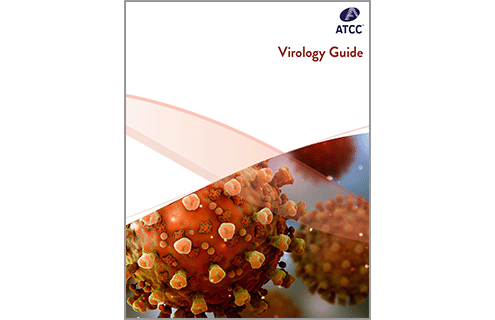
Bioproduction of viruses and proteins in eukaryotic cells is critical for industrial applications such as vaccines, recombinant therapeutics, and synthetic foodstuffs. Viruses are pathogenic organisms that need living cells in order to multiply. The host’s replicative machinery is recruited to assist with viral replication. Once viral nucleic acids and structural proteins are generated, new viruses assemble within the cell. Additionally, protein production using eukaryotic cells is desirable as the final product typically includes all the appropriate post-translational modifications needed to generate many functional proteins.
At ATCC, we know your yield and efficiency of virus production and protein expression is important. To support this endeavor, we have developed virus and protein production systems that match reliable, authenticated cells with their ideal reagents to create optimized, easy-to-use bioproduction tools. We make it easy to get reliable yields so you can develop systems for gene delivery or protein production in clinical trials and drug testing.
Cell lines for virus production
Antiviral vaccines are essential for preventing epidemic disease; however, the production of these therapeutics is often limited by low-yielding manufacturing processes. To address this, ATCC used cutting-edge CRISPR/Cas9 gene-editing technology to develop STAT1 knockout cell lines capable of producing high-titer viral stocks.
These STAT1-KO cell lines are not only good candidates for enhancing virus titers for vaccine development, but also useful tools to package lentiviral, adenoviral, and retroviral vectors for the delivery of DNA sequences into target cells for various applications such as gene therapy and cancer immunotherapy. Gene-edited lines for virus production include, VERO.STAT1 KO (CCL-81-VHG) and MDCK.STAT1 KO, (CCL-34-VHG).
HEK transfection system
We combined reliable, authenticated HEK 293T/17 SF cells with transfection reagents to create an easy-to-use protein expression system. HEK 293T/17 SF cell line is ideal for transient transfection and protein expression as it has been adapted to serum-free medium and suspension growth. The GeneXPlus transfection reagent has been optimized for use with the HEK line to reproducibly express a wide range of proteins at high levels.Transfection reagents
ATCC also offers cationic lipid-based transfection reagents that are designed to transfect a broad spectrum of cell types, from easy to transfect cell lines to primary cells, iPSCs, adult stem cells, and other hard to transfect cells, with high efficiency and low cytotoxicity. These transfection reagents have been tested in a large number of ATCC cell lines, primary cells, and stem cells; browse the website for the protocols.
ATCC transfection reagents may be used for the transfer of nucleic acids for a variety of applications, including protein expression and the overexpression of mutant genes. Our transfection reagents are cationic lipid-based; because of their positive charge, these transfection reagents interact with the negatively charged backbone of nucleic acids and cell membranes. This effect, coupled with the hydrophobic nature of the associated lipids, allows the cationic lipid-DNA complex to be transported into eukaryotic cells. ATCC offers:
- TransfeX for adherent cultures
- GeneXPlus for suspension cultures
- Tailored transfection protocols for hard-to-transfect cells
- Cell lines selected for high transfectability
Get ATCC transfection products and learn about the associated protocols.
Watch our webinar to amplify your viral vaccine production
Resources for virus and protein production

Culturing Viruses
Learn the best practices for culturing viruses and which media and reagents you need to keep your viruses happy and proliferating in host cells.
See the Presentation
ATCC Virology Culture Guide
Viral strains can be difficult to propagate. Explore our expert tips and techniques for propagating viruses in tissue culture and embryonated chicken eggs.
Get the guide